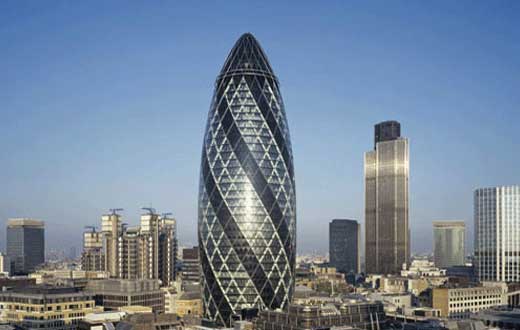 It is up to banks to rebuild the public’s trust following a succession of scandals, the head of the Financial Services Authority said today. Lord Adair Turner told a business audience in London this morning that the fixing of the Libor rate would not have been spotted without “intense” and “expensive” supervision and it was up to management and boards to “make effective controls against dishonest behaviour the highest priority.” Lord Turner’s speech came as Barclays asked investment banker Anthony Salz to lead a review of its business practices in the wake of the Libor scandal. [The Times]
It is up to banks to rebuild the public’s trust following a succession of scandals, the head of the Financial Services Authority said today. Lord Adair Turner told a business audience in London this morning that the fixing of the Libor rate would not have been spotted without “intense” and “expensive” supervision and it was up to management and boards to “make effective controls against dishonest behaviour the highest priority.” Lord Turner’s speech came as Barclays asked investment banker Anthony Salz to lead a review of its business practices in the wake of the Libor scandal. [The Times]
Apple, the world’s largest company by market capitalisation and a juggernaut whose quarterly profits have a habit of blowing away analysts’ forecasts, showed that it was not immune to the economic pressures building in Europe. Weaker-than-expected iPhone sales in France, Italy and Germany caused the company to miss revenue and earnings forecasts in the three months to 30 June, and sent Apple shares down over five per cent in after-hours trading last night. Tim Cook, chief executive, also blamed internet rumours about the next generation iPhone, expected later in the year, which led some customers to put off purchases of the existing model. [The Independent]
Jaguar Land Rover is to create 1,100 new jobs at its plant in Castle Bromwich as part of plans to revitalise the Jaguar brand. Vince Cable, the Business Secretary, said the new jobs were a “clear demonstration of Jaguar Land Rover’s continuing commitment and investment in the UK”. The luxury car maker has hired more than 8,000 people in the past two years and now has a workforce of more than 20,000. [ The Telegraph]
Greece may run out of money and go bankrupt by Aug 20, a British government analysis of the ongoing Eurozone crisis has warned. The beleaguered country will have to refinance billions of euros worth of government bonds in less than a month and requires international assistance — which may not be forthcoming — to repay the money. International inspectors arrived back in Greece on Tuesday to assess the country’s austerity programme with European officials warning that it was “hugely off track”. David Cameron is now receiving daily written updates on the deteriorating situation and was warned earlier this week that a Greek bankruptcy in the next month is now a serious possibility. [Telegraph]
The UK economy has shrunk for the third successive quarter, official figures are expected to show on Wednesday, prolonging Britain’s double-dip recession and threatening to derail chances of recovery this year. The Office for National Statistics is expected to say gross domestic product shrank by at least 0.2% between April and June as the Jubilee holiday, weak domestic demand and the Eurozone crisis dragged the economy down. It would mark the third successive quarter of contraction, leaving Britain in its longest double-dip recession since 1975. The economy shrank by 0.3% in the first quarter of the year, following a 0.4% contraction in the final quarter of 2011. The work lost as a result of the extra day given for the Queen’s Diamond Jubilee celebrations in June was a significant drag during the quarter according to economists, disguising a slightly stronger “underlying” economy. The figures are expected to show a sharp fall in construction output, shrinking industrial output, and little if any growth in the services sector. [Telegraph]
The Kremlin has fired the opening salvo in a battle to wrest back control of the rights to exploit Russia’s vast oil reserves by declaring its interest in BP’s lucrative local joint venture. Igor Sechin, the president of Rosneft and a key ally of Vladimir Putin, announced that the state-backed oil group had begun negotiations with BP to buy the British company’s 50 per cent stake in TNK-BP. Analysts said that President Putin was plotting to reclaim state control over Russia’s oil industry, which is dominated by private sector companies. John Lough, associate fellow at the foreign affairs think-tank Chatham House, said: “There is appetite in parts of the Russian Government for building up the role of state companies in the oil sector. TNK-BP has some good assets so it’s no surprise that Rosneft is interested.” [The Times]
First Group chairman Martin Gilbert will today face fresh shareholder pressure to step down over continued under-performance of the firm. Analysts have criticised the board’s “numerous and significant” management “failings” which have caused First’s share price to drop significantly since a surprise profits warning in March. Chief executive Tim O’Toole waived his right to a £350,000 bonus after a weak performance last year. Rumblings in the City have seen fingers pointing at Gilbert whose role has been the subject of speculation that he has failed to hold the board to account and that, as chief executive of FTSE 100 company Aberdeen Asset Management, he is too stretched. Gilbert has been chairman of First for 17 years, which has also caused some to speculate it is time for fresh blood. [Scotsman]
The battle over the price of milk swung in favour of producers last night with the National Farmers Union of England and Wales announcing that Asda had confirmed it would raise the price it pays for milk by 2p per litre (ppl) from 1 August. NFU president Peter Kendall said the price increase from Asda should now pave the way for the three big milk processors to do the right thing. “Today sees Asda joining Morrisons and the Co-operative in moving their milk price in the right direction,” he said. “They are all now committed to paying a price that covers their farmers’ cost of production. [Scotsman]







